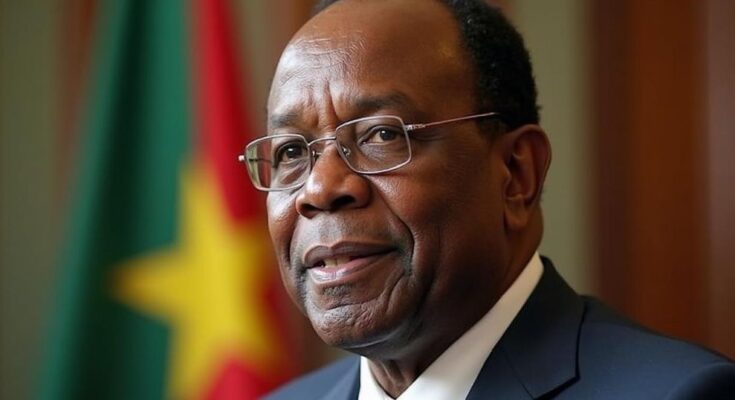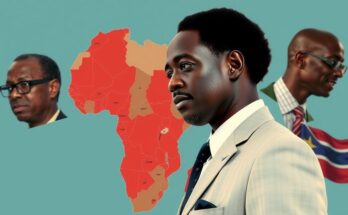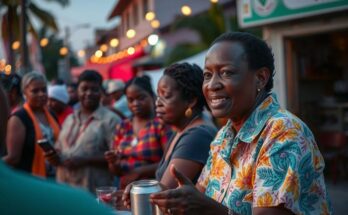The Cameroonian government has banned media discussion on President Paul Biya’s health, citing national security concerns. The directive follows his absence from public view for over a month, raising speculation about his wellbeing. Critics label the ban as state censorship, emphasizing the public’s right to know about their elected leader. Biya has been president for over 41 years, and his health remains a pivotal issue for the country’s political future.
The government of Cameroon has officially prohibited all media outlets from reporting on the health status of President Paul Biya, who is currently 91 years old and has not made a public appearance since early September. This directive was issued by Interior Minister Paul Atanga Nji in a letter dated October 9, which mandated that any public discussion regarding the president’s health be considered “strictly prohibited.” He further ordered the establishment of “monitoring cells” to oversee online discourse pertaining to this issue. The minister characterized such discussions as a “matter of national security,” threatening legal action against any violators of this newfound regulation. The president was last seen at the China-Africa summit in Beijing a month ago, and since then, he has missed several significant international events, raising concerns about his well-being. Despite this, government spokesperson Rene Sadi has publicly dismissed any speculation suggesting that President Biya is unwell. He attributed the absence to a private visit to Europe and assured the public that the president is “in good health” and will return to Cameroon shortly. Critics have condemned this ban as an infringement on press freedom, emphasizing that it is within the rights of the citizens to be informed about their elected leader’s health. Journalist Hycenth Chia pointed out the disparity between the openness of health discussions regarding leaders such as United States President Joe Biden and the restrictions imposed in Cameroon. Furthermore, the Committee to Protect Journalists expressed serious concerns about the implications of citing national security to suppress crucial information regarding the health of a national leader. Observations indicate that the lack of a clear succession plan in the event of Biya’s passing could lead to significant political instability in Cameroon and the broader West and Central African region, which has already witnessed numerous coups since 2020. Biya has maintained his position as president for over 41 years, ranking him among Africa’s longest-serving leaders.
President Paul Biya has been a central figure in Cameroonian politics for more than four decades, his tenure marked by both political stability and intensifying criticism over governance. The recent ban on media discussions about his health reflects broader concerns about freedom of speech in the country, where governmental control and censorship are prevalent. This directive comes amidst increasing scrutiny of Biya’s public appearances, especially given his advanced age and the implications of potential health issues regarding the future political landscape and succession in Cameroon.
In summary, the Cameroonian government’s ban on media discussions regarding President Biya’s health raises significant concerns about freedom of expression and the public’s right to information. While officials assert that the president is healthy, the lack of transparency may fuel speculation and unrest. As the country faces potential political disruption, the prohibition of critical discourse surrounding the president’s health is viewed by many as an attempt to suppress legitimate public concern.
Original Source: www.aljazeera.com




